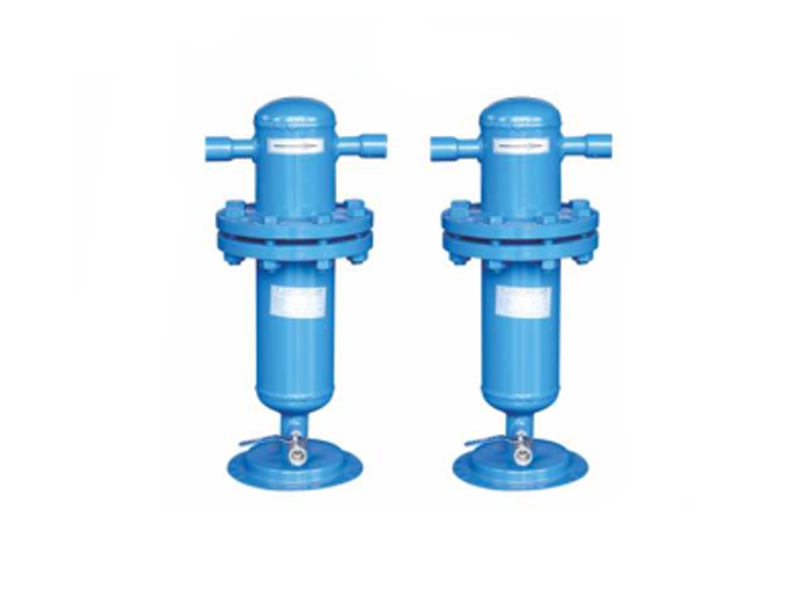For precision filters, the outer shell of the cylinder […]
For precision filters, the outer shell of the cylinder is generally made of stainless steel, and the tubular filter elements such as PP meltblown, wire burning, folding, titanium filter elements, and activated carbon filter elements are used as filter elements. Different filter elements are selected according to different filter media and design processes. In order to meet the requirements of effluent quality. It is used for the solid-liquid separation of various suspensions. The chemical liquid filtration with relatively high environmental requirements and high filtration accuracy has a wide range of application and is suitable for pharmaceutical, food, chemical, environmental protection, water treatment and other industrial fields.

Performance characteristics of air precision filter:
(1) High filtration accuracy, uniform filter pore size
(2) The filtration resistance is small, the flux is large, the pollution interception ability is strong, and the service life is long.
(3) The filter core material has high cleanliness and no pollution to the filter medium.
(4) Resistant to chemical solvents such as acid and alkali.
(5) High strength and high temperature resistance, the filter element is not easy to deform.
(6) Low price, low running cost, easy to clean, and replaceable filter element.
Basic parameters of air precision filter:
1: Filtration amount T/H: 0.05-20
2: The pressure of the filter mpa: 0.1-0.6
3: Number of filter specifications: 1, 3, 5, 7, 9, 11, 13, 15,
4: Filter operating temperature °C: 5-55
Maintenance:
1. The core component of the precision filter is the filter element. The filter element is a vulnerable component that requires special protection.
2. The precision filter works for a long time, it will block a certain amount of impurities, and the working rate will drop at this time, so it should be cleaned frequently and the filter element should be cleaned at the same time.
3. During the cleaning process, pay special attention to the cleaning of the filter element, and do not deform or damage it. Otherwise, the filtration accuracy will be reduced and the production requirements will not be met.
4. If the filter element is deformed or damaged, it must be replaced immediately.
5. Certain precision filter elements cannot be used repeatedly, such as bag filter elements, polypropylene filter elements, etc.;
Application areas:
Precision filters are widely used in petrochemical industry, natural gas, paints, paints, inks, medicine, biological engineering, automobile manufacturing, electronics, electroplating, food, beverages and other fields. They are ideal equipment for the filtration, clarification, and purification of various types of liquids.
Petrochemical and chemical industries: hydrogen peroxide, resins, lubricating oils, polymers, viscose, jet coal and various oils, catalysts, chemical fibers, various fluid purification, chemical intermediate products and chemical product separation and recovery in the manufacturing process;
Petroleum and natural gas industries: CNG filtration at gas stations, amine liquid desulfurization and dehydrating agent filtration, natural gas and refinery separation and purification, oil field water injection, workover, and acidified liquid filtration;
Paint, paint, and ink industries: latex paint, paint raw materials and solvent filtration, printing inks, printing inks and additives;
Pharmaceutical and bioengineering industries: infusion (LVP and SVP) pharmaceutical water, biological products plasma serum, various pharmaceutical intermediates, pharmaceutical raw materials, solvent filtration, CIP filtration, fermentation tank air intake and exhaust gas sterilization filtration;
Automobile manufacturing industry: electrophoretic paint, topcoat, ultrafiltration water, pre-treatment liquid, vehicle spray water, engine crankshaft manufacturing coolant, industrial gas for paint spraying and gas purification in paint spraying rooms;
Electronics and electroplating industries: liquid crystal displays, lithography machines, optical discs, copper foil, integrated circuits and other microelectronics and electronic products, various chemicals and treatments in the manufacturing process, electroplating solutions, process gas purification and gas filtration in purification rooms;
Food, beverage, and wine industries: process purification and aseptic processing of food additives such as wine, rice wine, white wine, beer, fruit wine, sake, fruit juice, tea beverages, soy milk, dairy products, bottled water, edible oil, vinegar, and MSG.